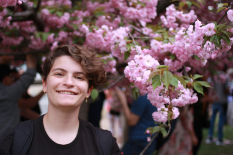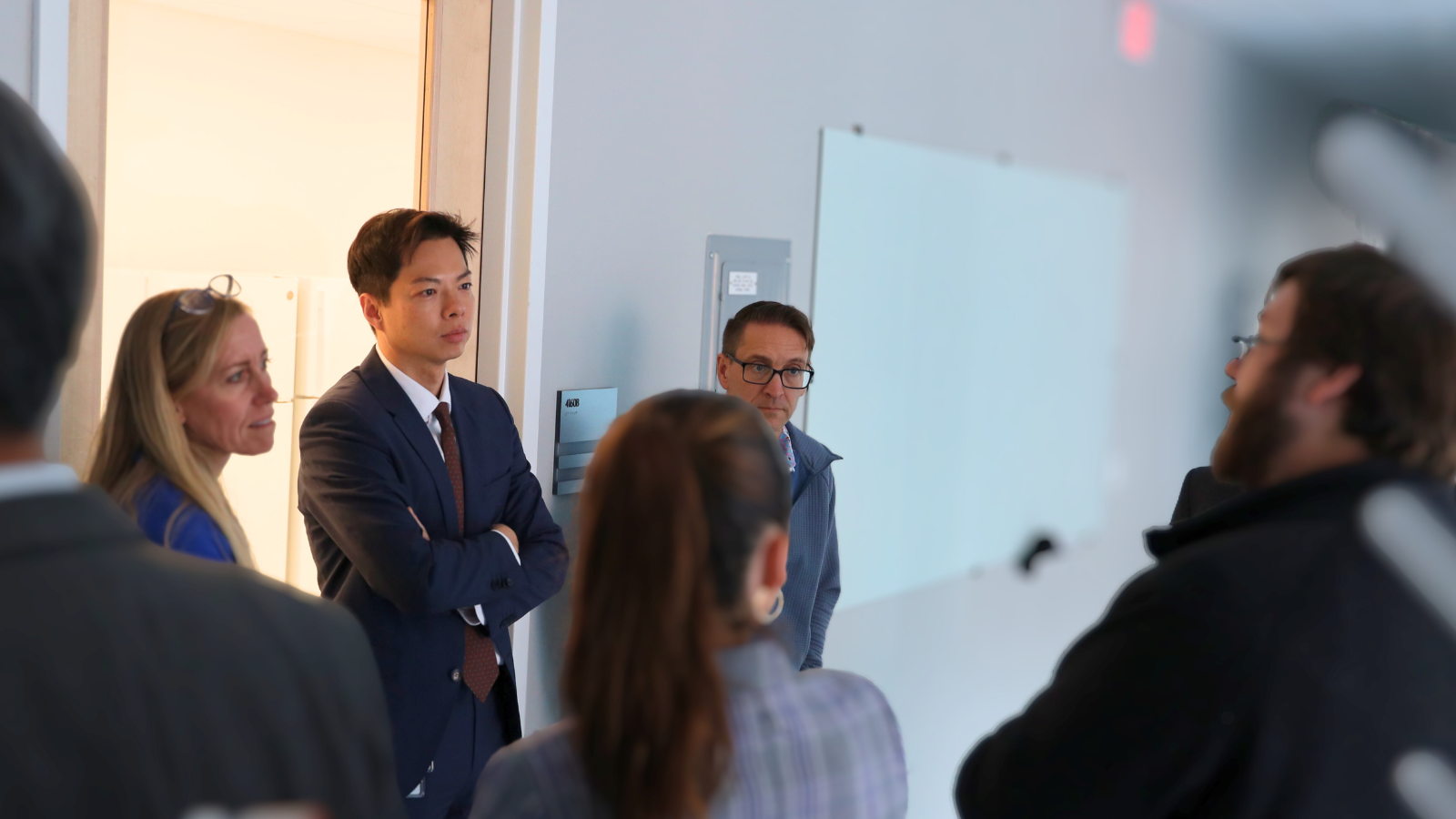News Story
Sneh Awarded Seymour & Faye Wolf Endowed Scholarship

BIOE junior Keren Sneh
The Fischell Department of Bioengineering (BIOE) recently awarded junior Keren Sneh the Seymour & Faye Wolf Endowed Scholarship. It was established in 2002, and provides $2,900 in funding to an undergraduate BIOE student annually.
Sneh grew up in Boulder, CO, and is the daughter of business owners and scientists. Her father earned his Ph.D. in Chemistry, and her mother holds a Ph.D. in Electrical Engineering. “My parents own their own business, where they build machines and work with science,” explains the BIOE student. “So it’s always been a part of my life. I’ve always been encouraged to have an interest in science, and I enjoy it.” Keren Sneh took a gap year between high school and college, during which time she underwent EMT training in the Denver Health program.
Her desire to help people - combined with a lifelong fascination with building and creation - led her to study bioengineering at the University of Maryland. Sneh first visited campus for its annual National History Day competition during her sophomore year of high school. She cites the Clark School’s reputation for research excellence and proximity to the National Institutes of Health (NIH) and U.S. Food and Drug Administration (FDA) as leading reasons for choosing the school.
Sneh joined BIOE as an undergraduate student in 2018, and took part in University of Maryland’s First-Year Innovation & Research Experience (FIRE) program. Under the mentorship of Dr. Catherine Spirito, Sneh began her research in the FIRE Engineering Diagnostics Lab - now called the Molecular Diagnostics Lab. She and her peers worked to design and test biosensors – synthetic DNA or RNA molecules that can detect a target (e.g. bacteria, bacterial signaling molecules, or human disease biomarkers) and emit a detectable signal (e.g. a color change or a fluorescent signal). Sneh focused on developing biosensors for use in Bacillus subtilis, which is found in soil and the gastrointestinal tract of ruminants and humans. This research has both environmental and human health implications.In Spring 2020, she became a FIRE Peer Mentor. “I really enjoyed peer mentoring,” Sneh explains. “The awesome community in that lab is what initially got me so excited about research, so I wanted to help ensure that the new students had the same experience.”
The scholarship recipient also uses her leadership skills as a Volunteer Puppy Raiser and Head Group Leader for the Terps Raising Pups chapter of the Guide Dog Foundation for the Blind on campus. This organization provides highly trained guide dogs to people who are blind or visually impaired, free of charge. Sneh trained and socialized labrador puppy Willie for a year, teaching him basic obedience and house manners, and exposing him to situations he may encounter as a working dog. Willie recently returned to the Guide Dog Foundation to complete formal training before receiving a work assignment. “Alongside my role as a puppy raiser, as a head group leader I am responsible for teaching new applicants how to train our puppies and to serve as a point of contact for a portion of the applicants,” says Sneh. “I handle the paperwork of the applicants and help guide them through the application process.” The next puppy that she will raise will come from America’s VetDogs - a sister organization of the Guide Dog Foundation, which benefits veterans living with PTSD, mobility complications from physical injury, and other issues.
Sneh has also functioned as a Visiting Undergraduate Student at the Johns Hopkins Institute for NanoBio Technology since May 2020. She is working remotely on a project to create a soft robot that can detect and react to concentration gradients. “The gradient is detected by synthetic genetic regulatory networks made of genelets that signal DNA-cross-linked hydrogels to swell or contract to allow the robot to move towards the source of the concentration gradient,” explains Sneh.
“I’m really interested in creating nanotechnology - using genetics and protein engineering,” she says. Sneh is excited to continue her studies in graduate school, and hopes to pursue a career in either research or academia.
Published December 14, 2020









